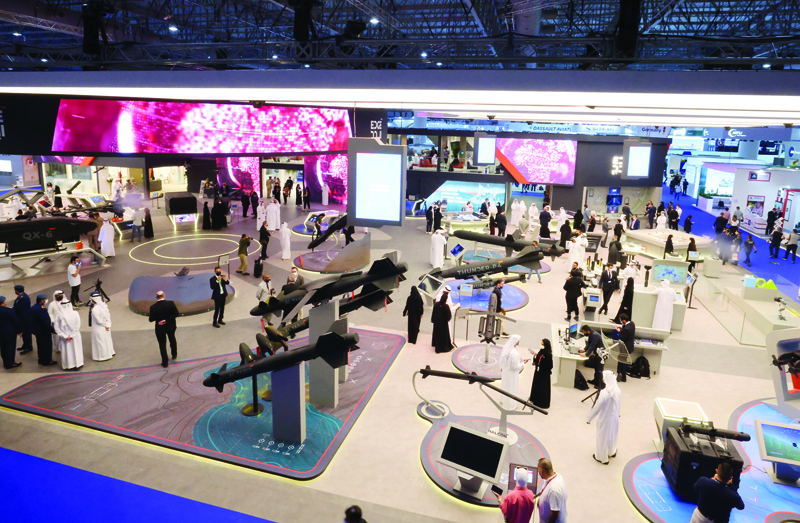 DUBAI: Military equipment is displayed at the Dubai Airshow in the Gulf emirate yesterday. - AFP
DUBAI: Military equipment is displayed at the Dubai Airshow in the Gulf emirate yesterday. - AFP
DUBAI: Boeing got the ball rolling yesterday at a major air show in Dubai, announcing a contract with an Icelandic company to convert 11 single-aisle 737 aircraft into cargo planes. The five-day Dubai Airshow, the aviation industry's first large gathering since COVID-19 clipped the sector's wings last year, comes as global air traffic remains around half the level of 2019.
But global demand for air cargo transport is nine percent above pre-crisis levels, according to the International Air Transport Association (IATA). The American plane-maker on Sunday did not disclose the value of the contract with Icelease to convert 11 Boeing 737-800BCFs-previous generation of the MAX series-into cargo planes.
To meet growing demand, Boeing announced it would open three new freighter conversion lines in Canada and the United Kingdom, in addition to those recently opened in China and Costa Rica. "It was a nascent phenomenon before COVID. Pre-COVID, we just couldn't put enough 737 (cargo planes) out there to satisfy the market," Ted Colbert, CEO of Boeing Global Services, told reporters in Dubai. The aviation industry has weathered the global supply chain crisis that has created headaches for the shipping industry.
But amid a slump in global air traffic, during which traditionally half of all air freight was carried in the holds of passenger aircraft, airlines have turned to cargo planes. And due to the decrease of air traffic during the pandemic, hundreds of planes have been abandoned-particularly older generation ones-which could potentially be turned to cargo aircraft.
Boeing said in a statement it forecast 1,720 freighter conversions over the next 20 years to meet demand, adding it has "more than 200 orders and commitments from 19 customers". While wide-body aircraft, such as the Boeing 777, 767 and A350 have their own cargo versions, single-aisle aircraft such as the 737 do not. - AFP

